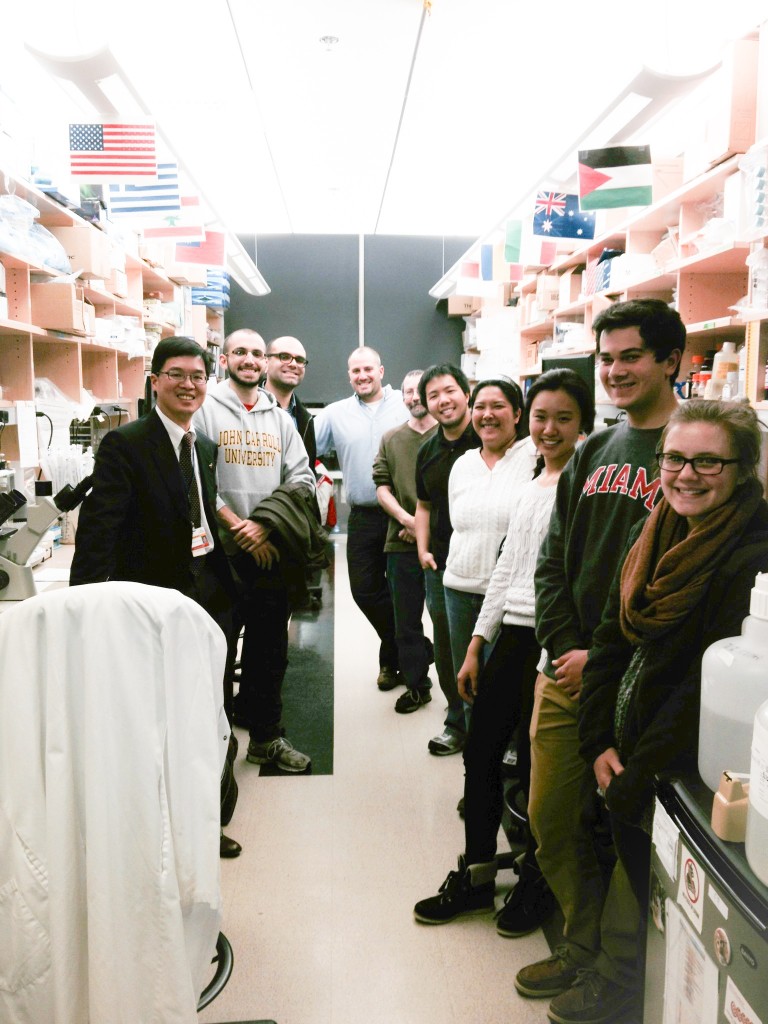This blog reviews the recently passed Kids First Research Act of 2013 and the impact of limited research dollars on places like Huang lab.
The Kids First Research Act of 2013 (H.R. 2019)
Description: The presidential candidates do not use the funds set aside from the income tax option because they find it to be too restrictive for campaigning. HR2019 Gabriella Miller Kids First Research Act of 2013 eliminates taxpayer financing of presidential campaigns and reprograms the savings to provide for a 10-year pediatric research initiative through the Common Fund administered by the National Institutes of Health.
HR2019 Gabriella Miller Kids First Research Act calls for $126 million over a ten year period to increase research for all types of kid’s diseases, cancer, autism, diabetes, and more. For details visit: http://www.gpo.gov/fdsys/pkg/BILLS-113hr2019ih/pdf/BILLS-113hr2019ih.pdf
Kids First Research Act of 2013 – Amends the Internal Revenue Code to terminate: (1) the taxpayer election to designate $3 of income tax liability for financing of presidential election campaigns, (2) the Presidential Election Campaign Fund, and (3) the Presidential Primary Matching Payment Account.
Redesignates the Presidential Election Campaign Fund as the 10-Year Pediatric Research Initiative Fund. Makes amounts in the Fund available only for allocation to national research institutes and national centers through the Common Fund for making grants for pediatric research under this Act. Requires deposit into the Treasury general fund of any amounts in the Pediatric Research Initiative Fund that remain unobligated on October 1, 2024.
For more information visit: http://4sqclobberscancer.com/on-capital-hill/hr2019/ for more about the Bill and its History.
Remember:
One in every 330 children in the United States develops cancer before the age of nineteen.
Each school day, enough children are diagnosed with cancer to empty two classrooms.
Depending on the type of cancer and the development upon diagnosis, approximately 2,300 children will die from cancer in any given year.
The number of children diagnosed with cancer in the U.S. each year puts more potential years of life at risk than any single type of adult cancer.
Cancer remains the number one disease killer of America’s children.
There are more than 360,000 childhood cancer survivors of all ages in the United States.
Unfortunately, 74% of childhood cancer survivors have chronic illnesses, and some 40% of childhood cancer survivors have severe illnesses or die from such illnesses.
Survivors are at significant risk for secondary cancers later in life.
Current cancer treatments can affect a child’s growth, fertility, and endocrine system.
Child survivors may be permanently immunologically suppressed.
Radiation therapy to a child’s brain can significantly damage cognitive function, especially if given at a very young age.
While currently there is very little in terms of “safe and effective” cures for any particular type of childhood cancer, the underlying genetics of the disease and recent research breakthroughs make such treatments foreseeable.
Thank your congressional leaders for supporting the KIDS FIRST RESEARCH ACT OF 2013 (H.R. 2019)
SO…HOW DOES FUNDING REACH PLACES LIKE HUANG LAB??
With the passage of the Kids First Research Act of 2013 it is appropriate to provide you with an example of how the shortage of funding and grants from places like the National Institute of Health and the National Cancer Institute impact local research efforts to conquer cancer. The example is through our collegues at Dr. Alex Huang’s Laboratory at Case Western Reserve Medical School in Cleveland, Ohio.
We (board members and high school students Tim Chrisman and Cassis Packis) visited the Lab on Tuesday, December 3rd.
Dr Huang graciously greeted us and gave a tour around the Research Laboratory where important PAYA Cancer Research is being conducted.
The dedicated researchers are working on several projects that focus on finding ways to stop cancer in its tracks! Not being a researcher I cannot do justice to the important work they are doing. However, by reading previous blogs you will find some excellent descriptions of the successes in the war on cancer. In addition to our visit we learned about the time and committment required by oncology researchers. In addition we learned about the limited funding and ever depleting numbers of medical students and scientistS who select not to enter the field of oncology research as a result of limited funding.
I found it disturbing to learn that PAYA Oncology Researchers are the LEAST awarded among researchers. And, their salaries are dependent on contributions from private donors and research grants. In addition, these grants are being awarded less frequently.
In the past, funding from institutions like the National Institutes of Health and National Cancer Institute were awarded to 1 out of 6 applicants. Today, however, these same institutions are only award 1 out of 16 applicants! Sadly, there are less and less resources available. It is very disheartening to know that the NIH and NCI does not prioritize PAYA cancer at the top of their funding agenda.
Contrary to public opinion, Huang Lab does not receive financial support from local hospitals.
Huang Lab does receive important funding from generous non-profit organizations (see HuangLab.com for more information).
Grant proposals must be written two years in advance in order to secure annual funding for staff and supplies.
FINDING BETTER WAYS TO TREAT AND CURE CANCER requires much administrative work, dedication, and highly educated individuals willing to sacrifice personal and family time as well as monetary gain…NEED I SAY MORE?
SO FRIENDS, please continue to share our blogs, write to Congressional Leaders to keep the funding coming, and, like us,
DO NOT REST UNTIL THERE IS A CURE!!!!!
FIGHT!!! CONQUER!!! CURE!!!




